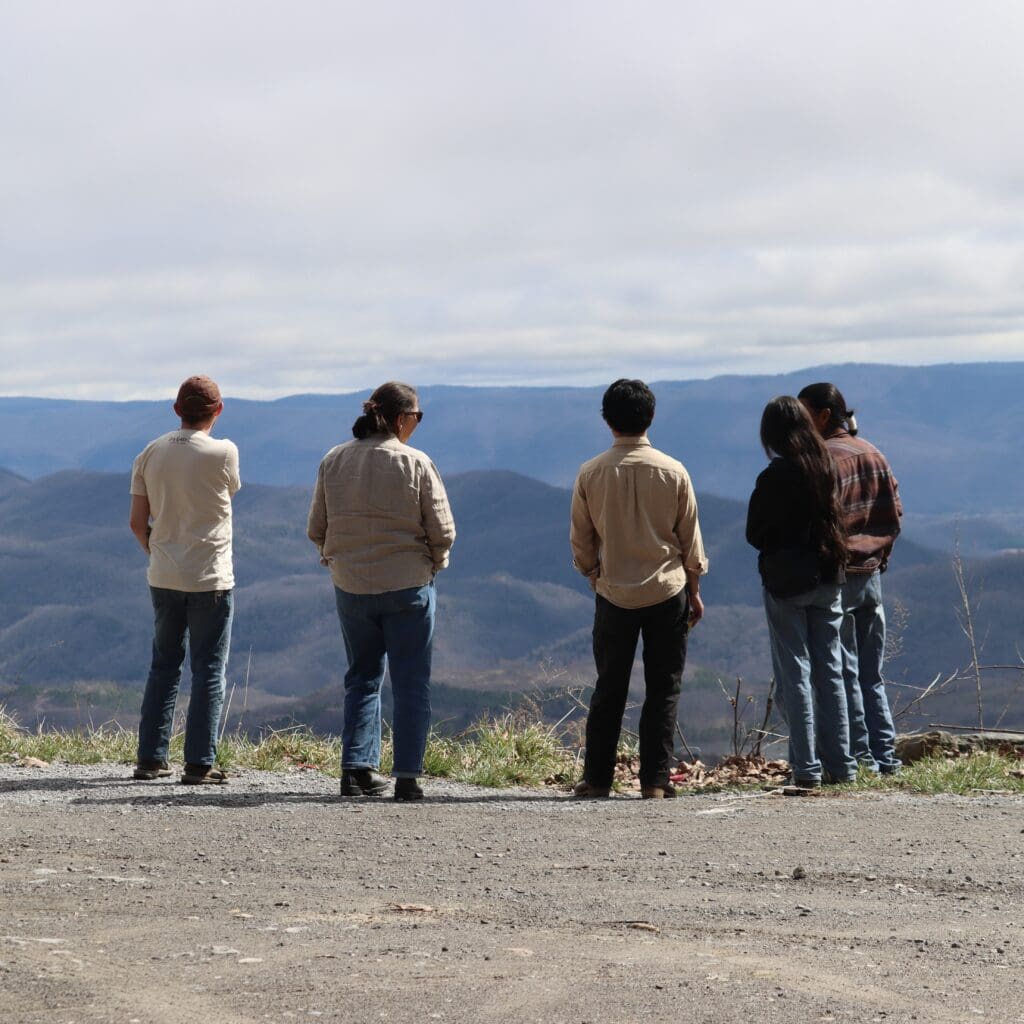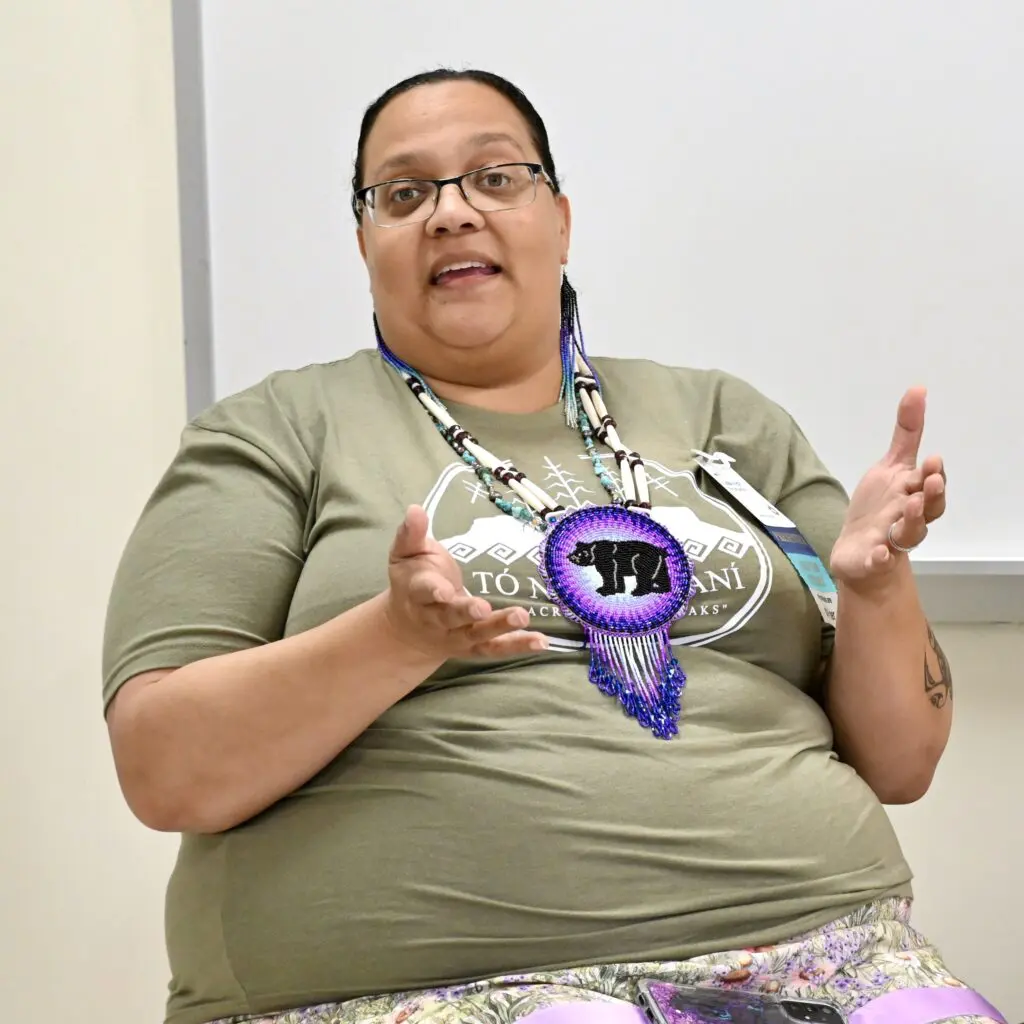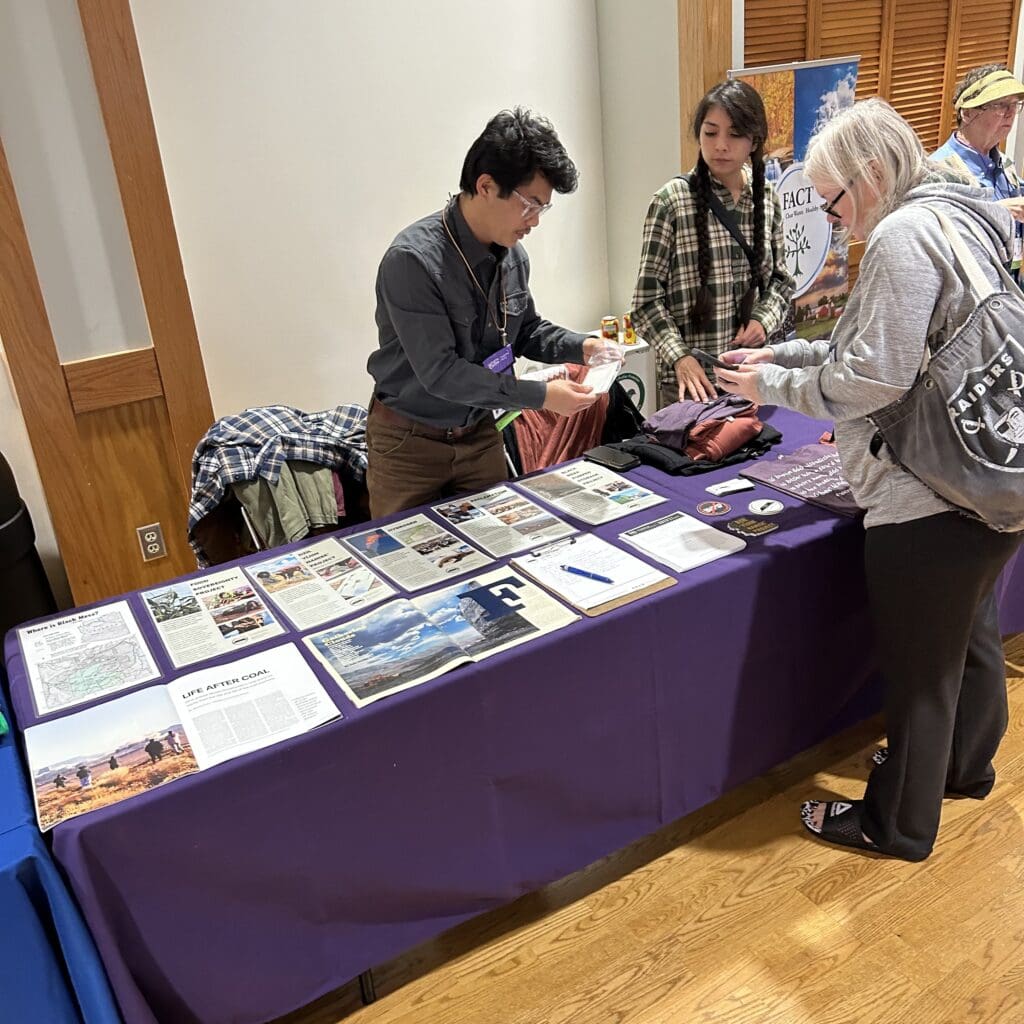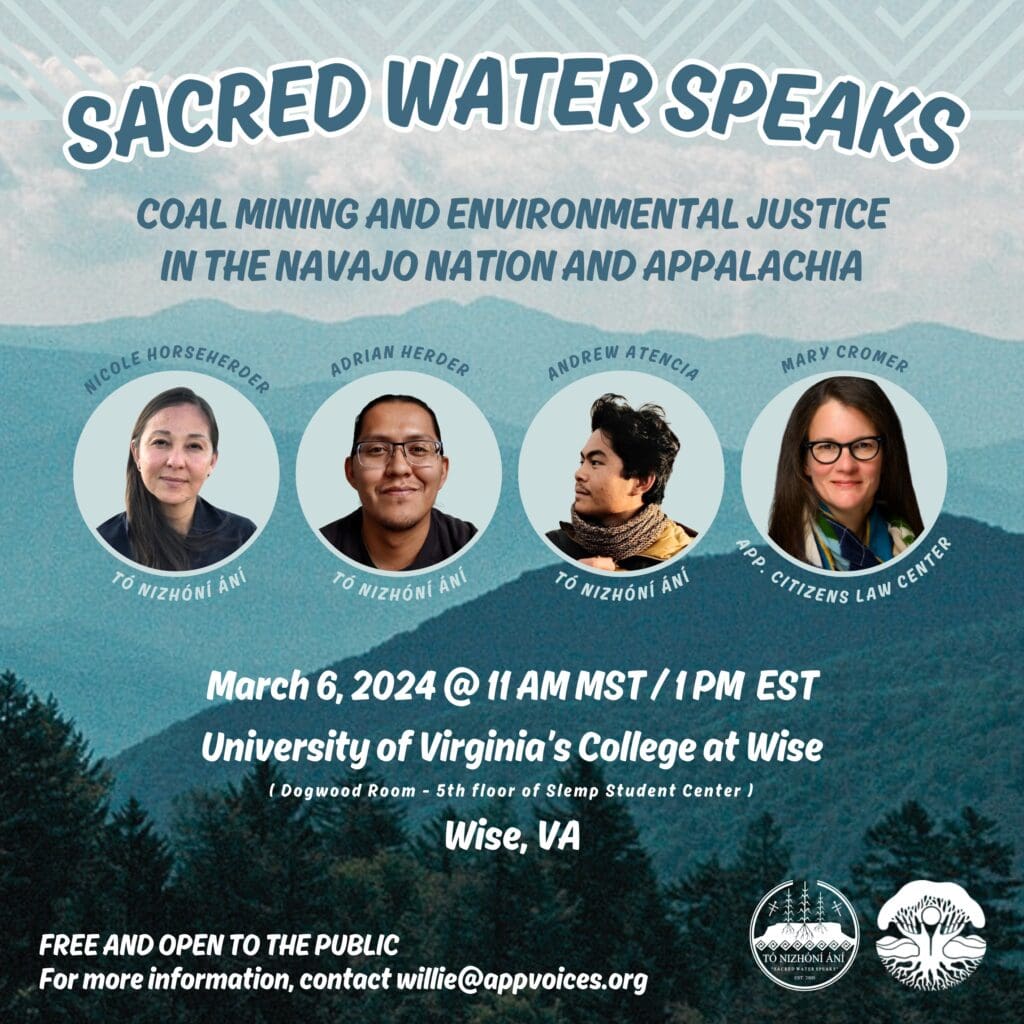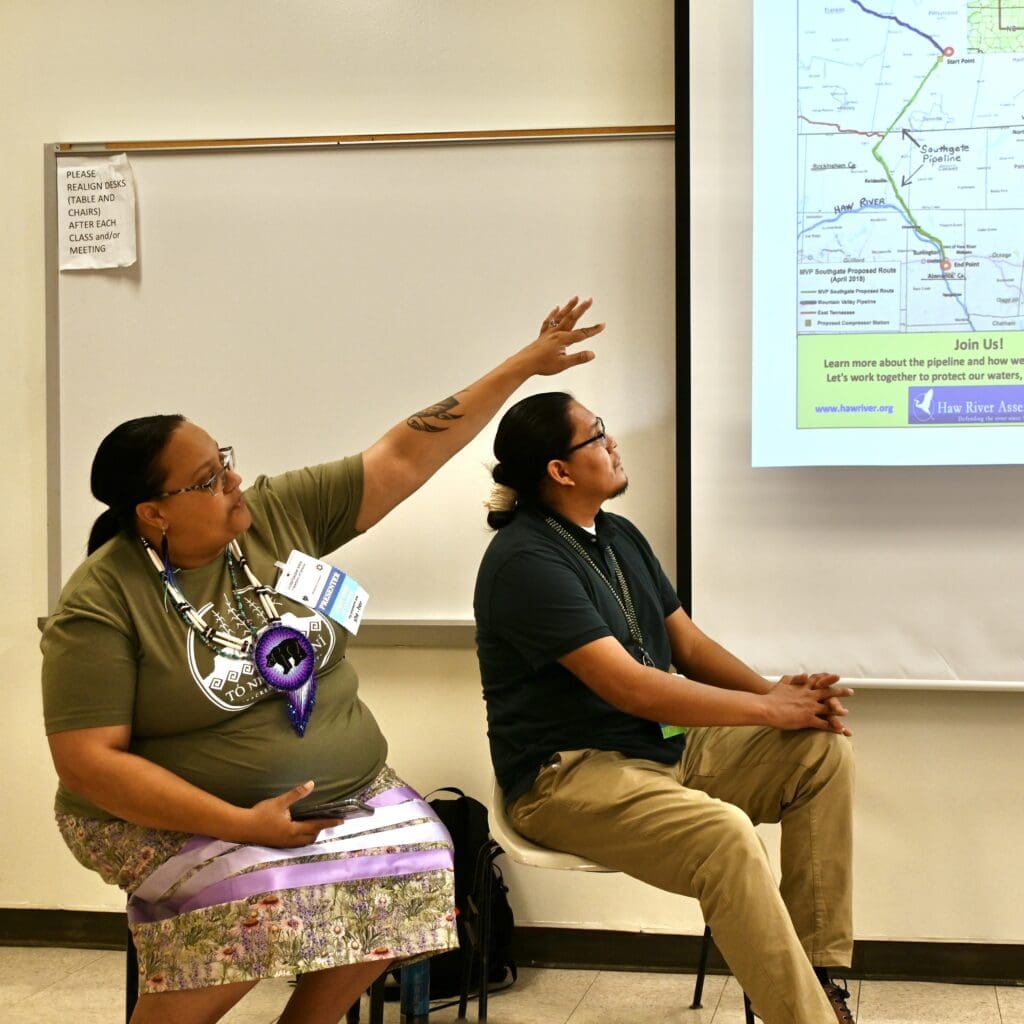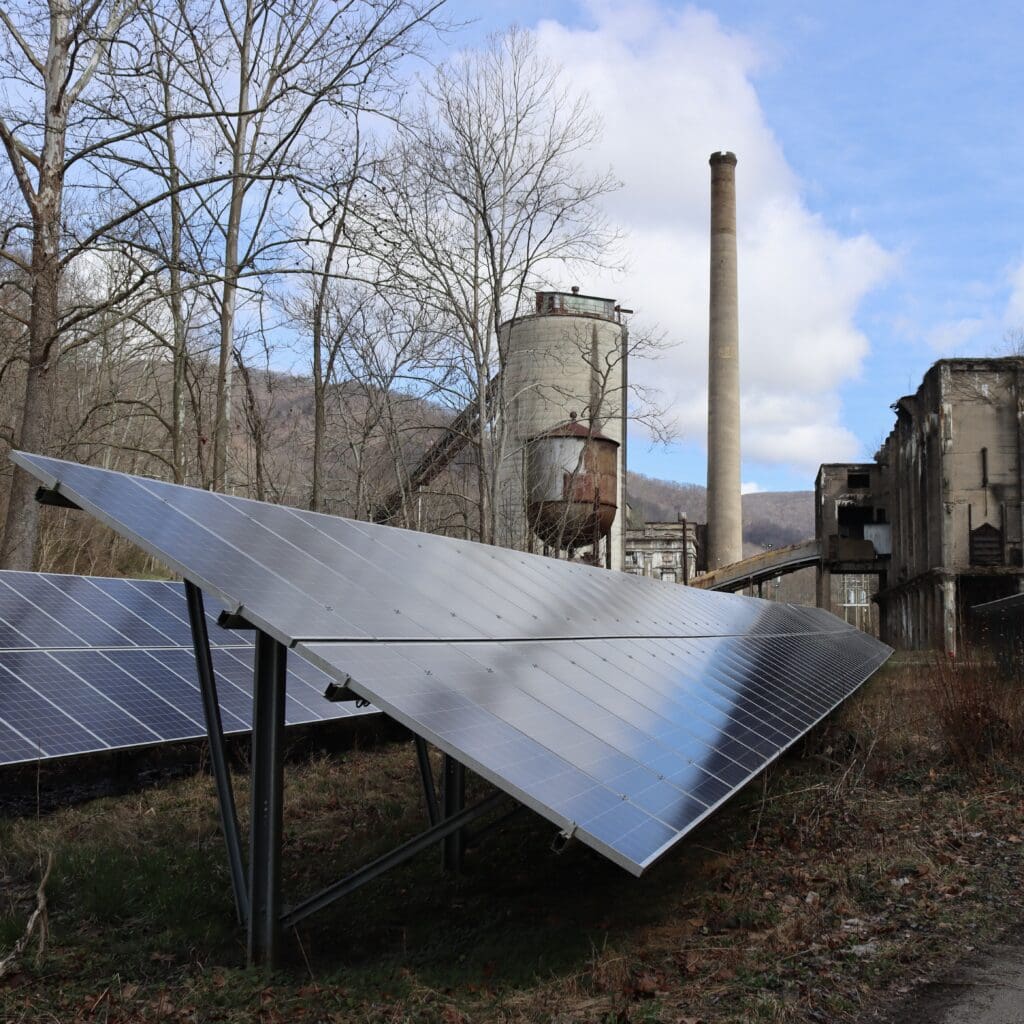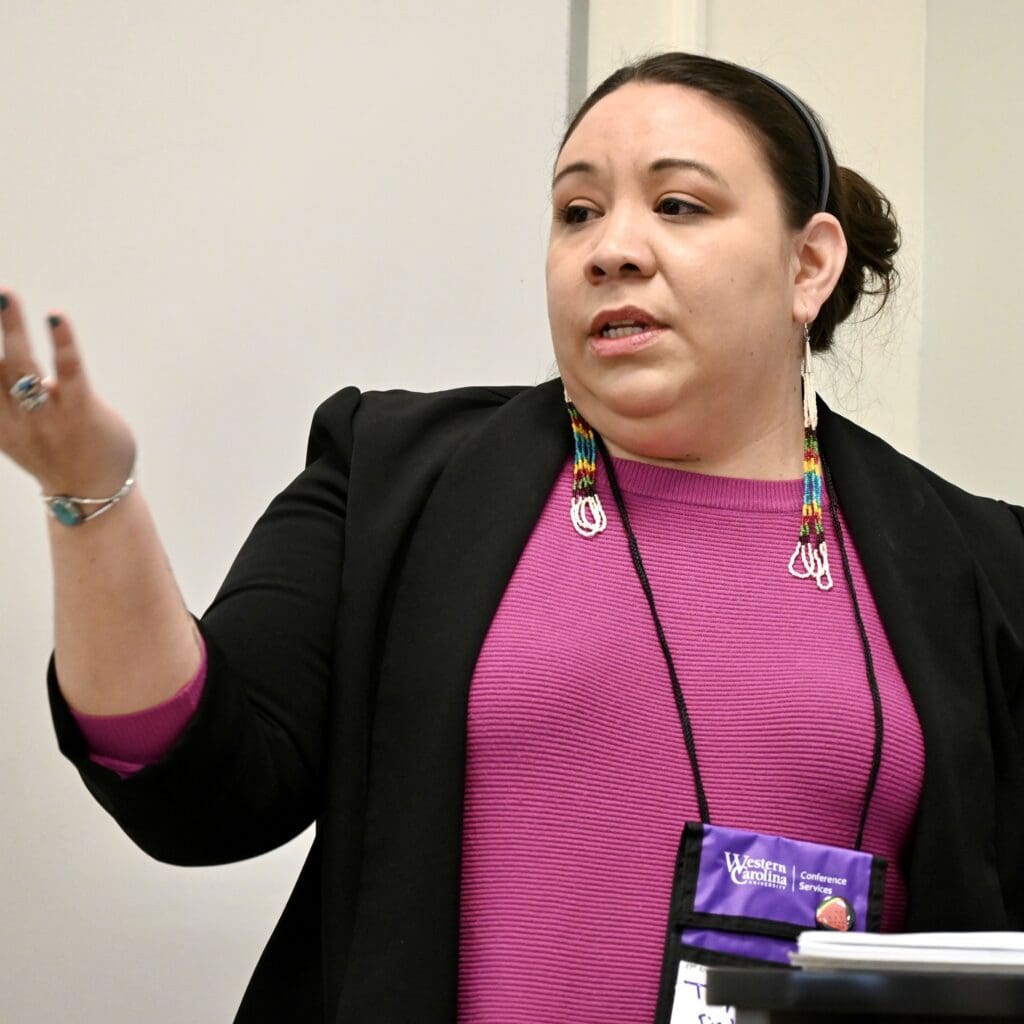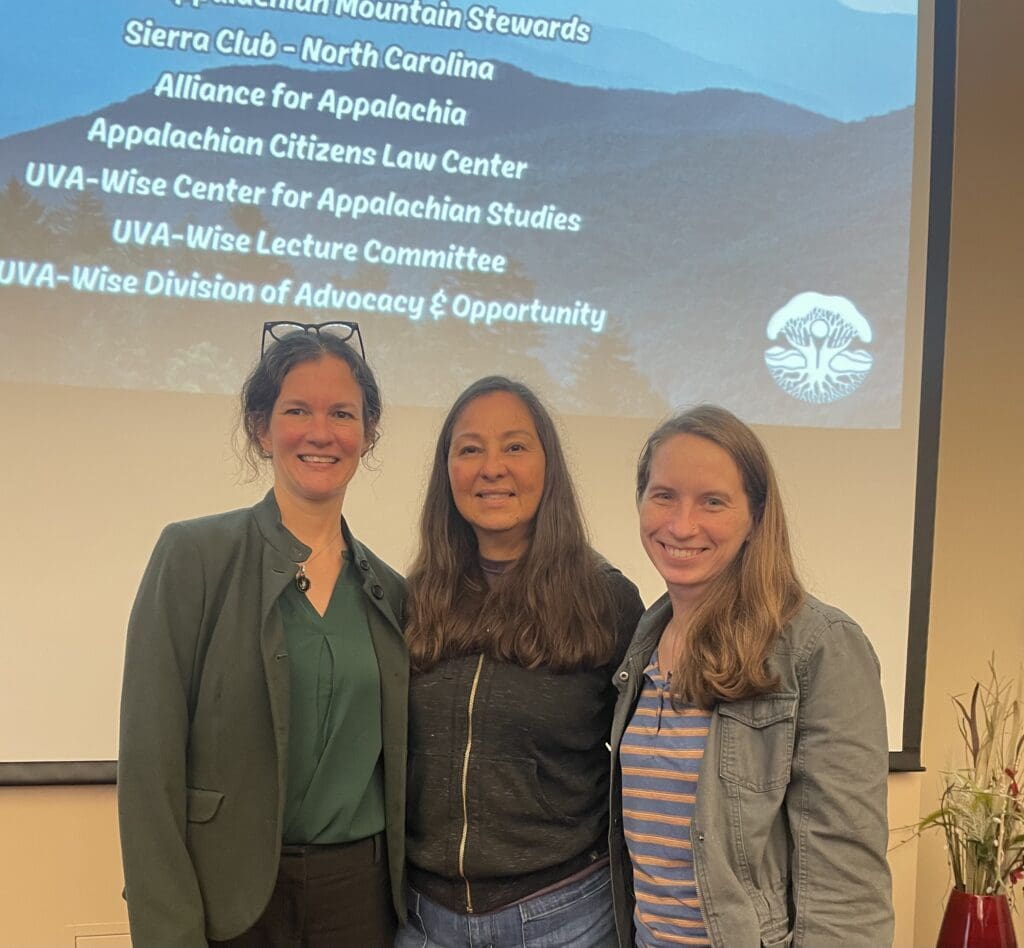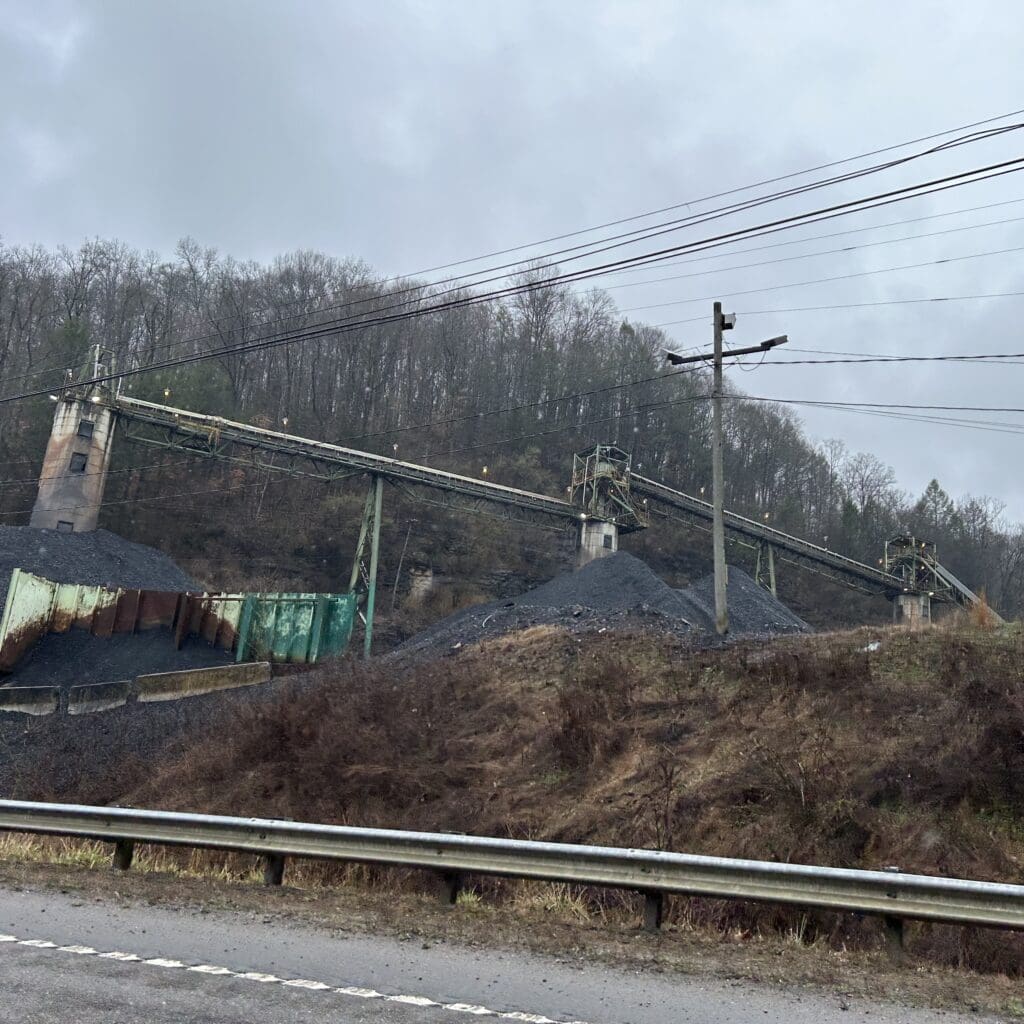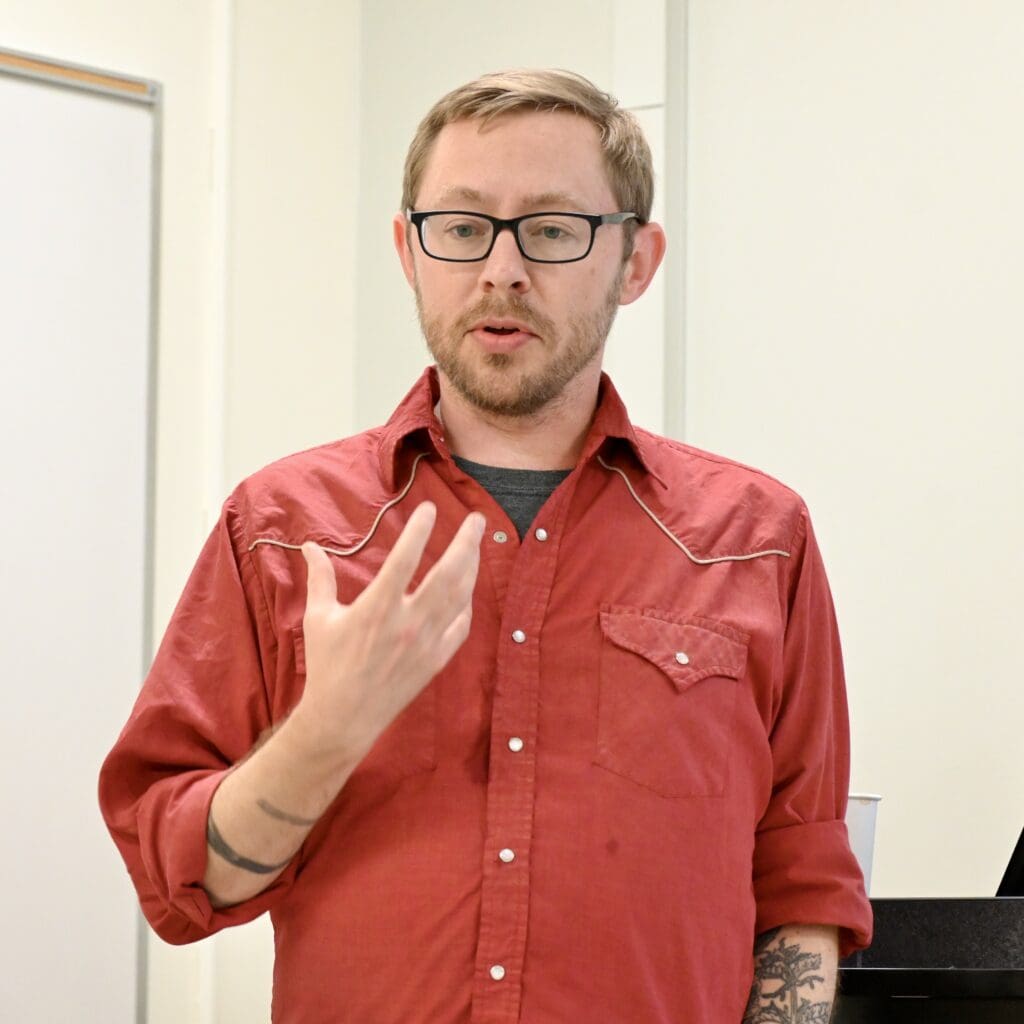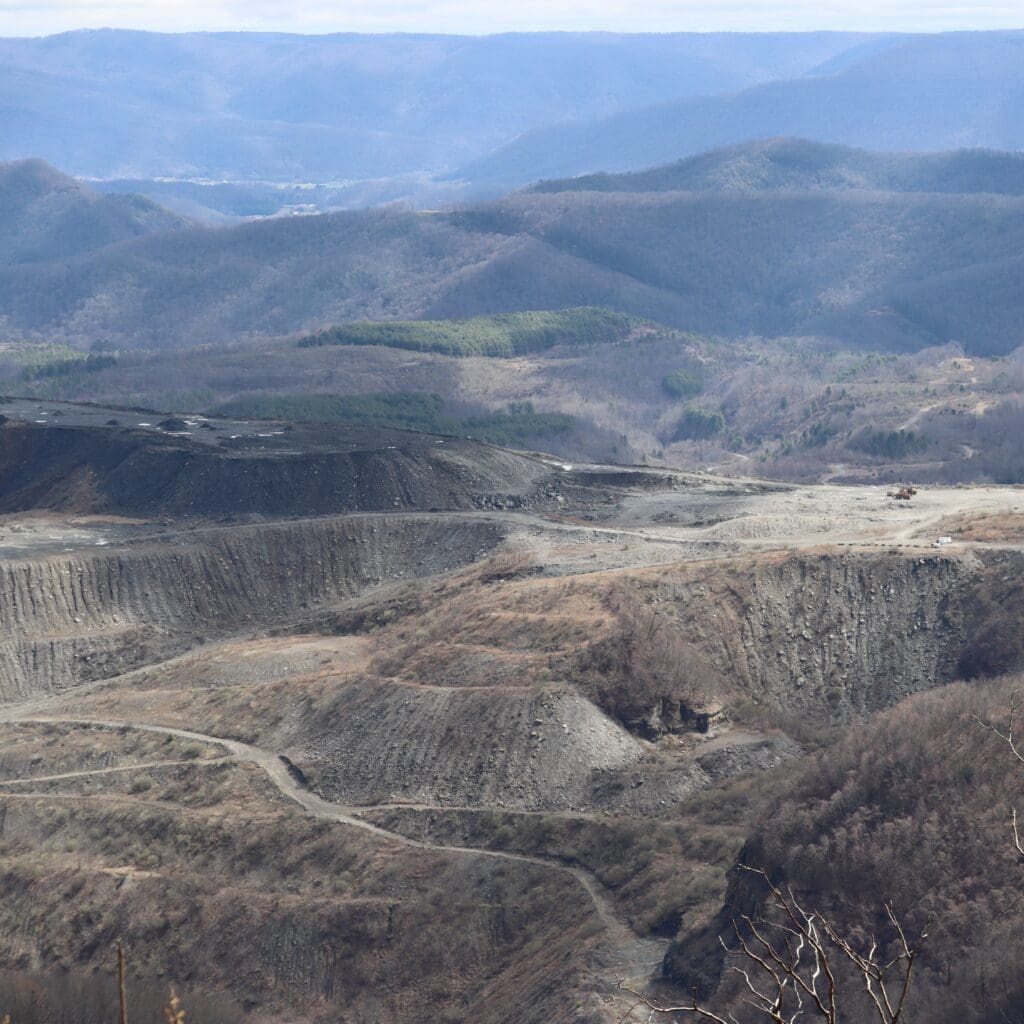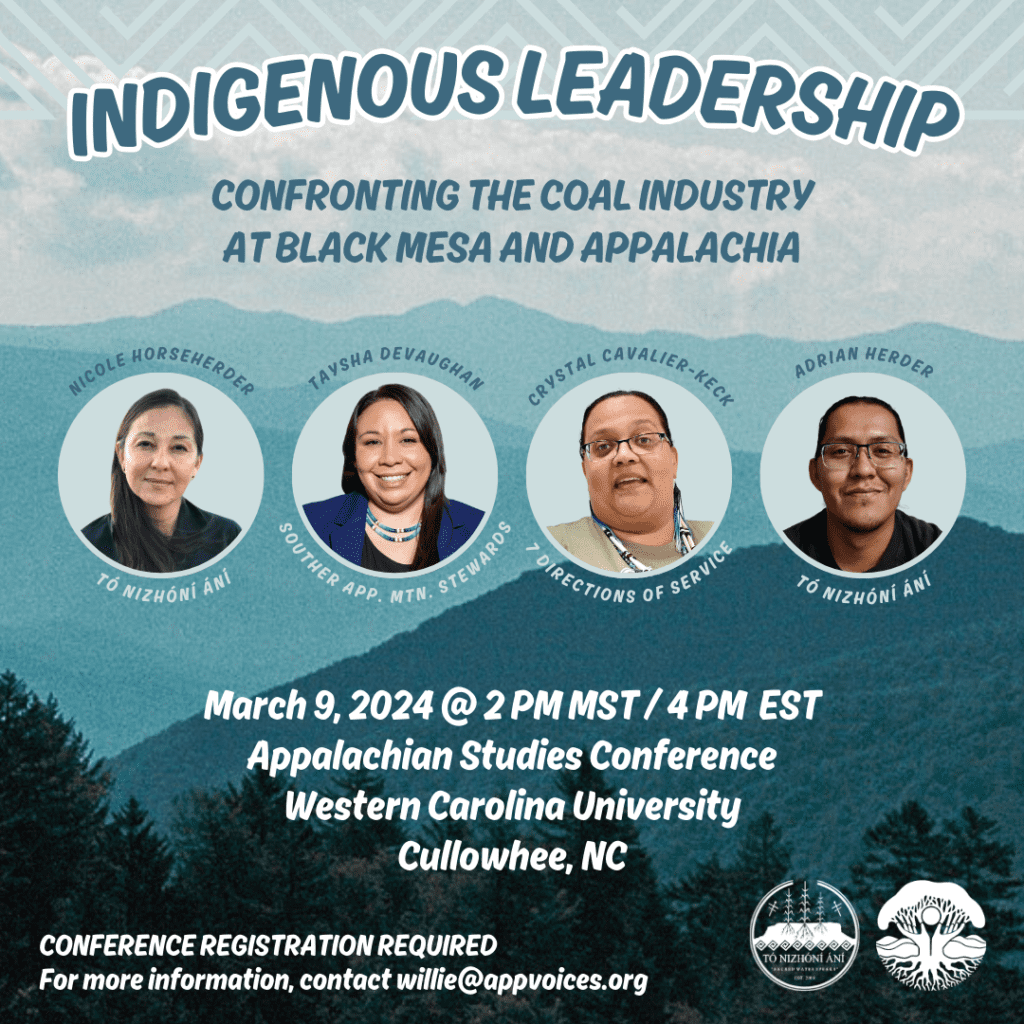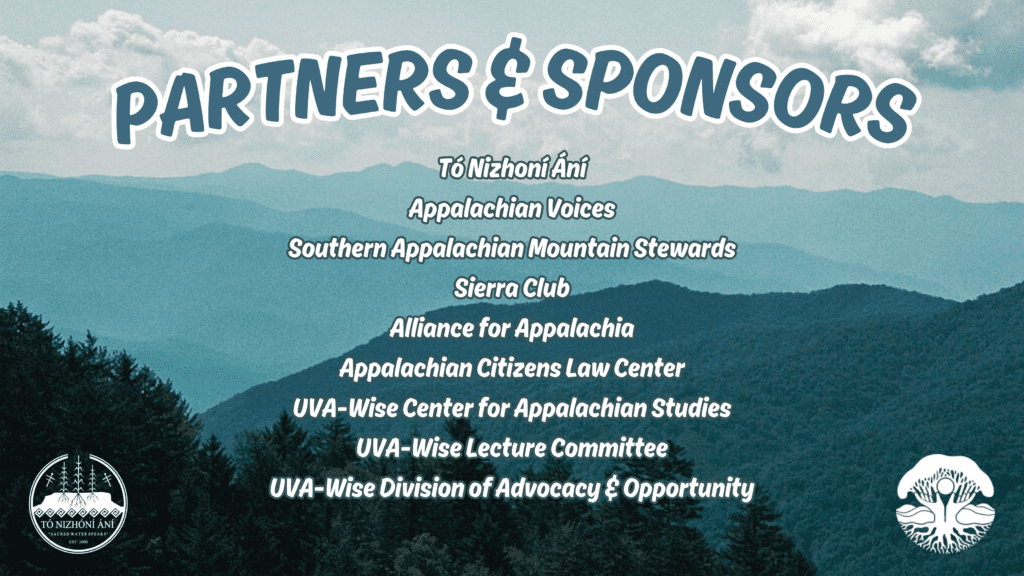Black Mesa organization travels to the Appalachia region
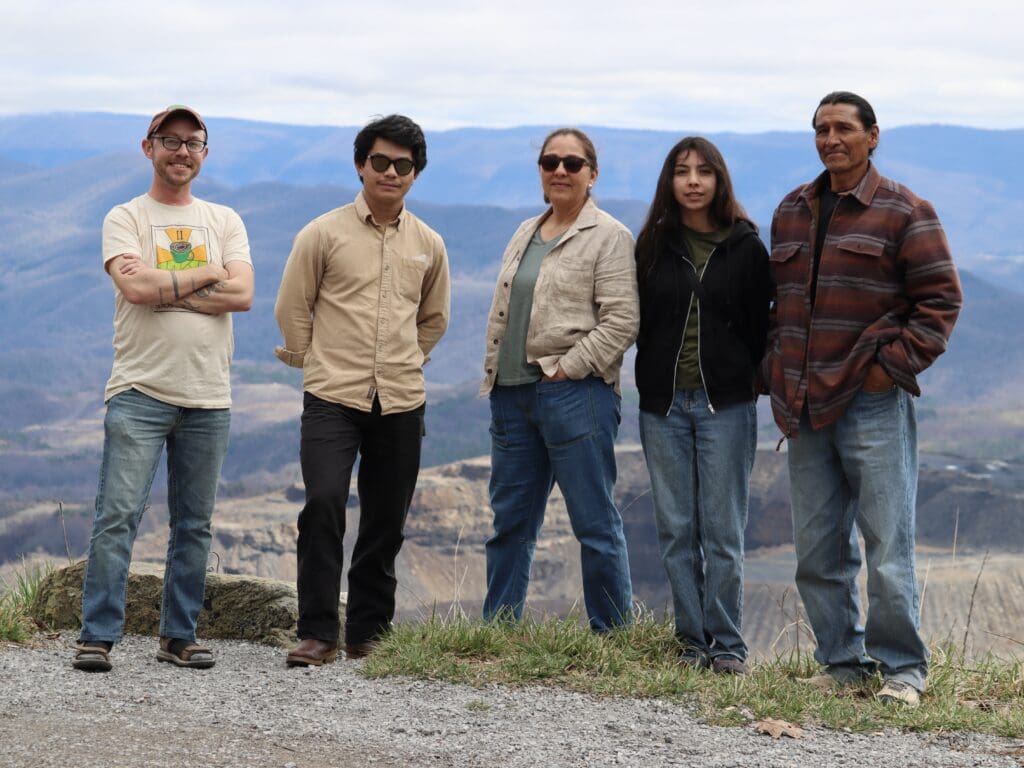
Last week, Tó Nizhóní Ání team members traveled to Southwest Virginia, Eastern Kentucky and Western North Carolina for a cross-culture exchange from the Black Mesa region here in the Navajo Nation to the Central Appalachian Region. Our team spent the week from March 5th to March 10th traveling with Willie Dodson, the Central Appalachian Field Coordinator with Appalachian Voices, to learn more about central Appalachia and its history and impacts of coal mining, and to meet grassroots organizers fighting for environmental justice in the region.
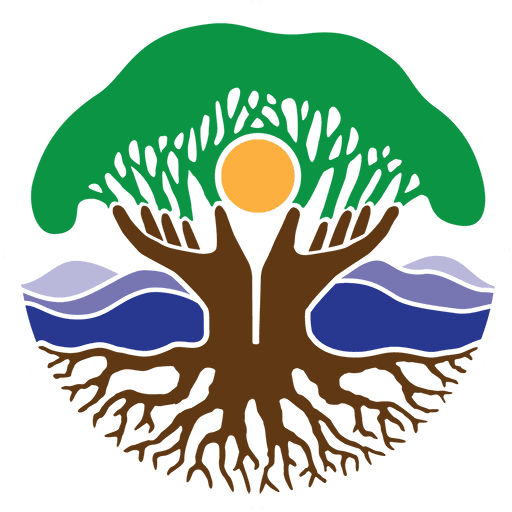
Founded in 1997, Appalachian Voices brings people together to protect the land, air, and water of Central and Southern Appalachia and advance a just transition to a generative and equitable clean energy economy. Learn More.
The first half of our trip was spent traveling to southwest Virginia, where Tó Nizhóní Ání team members Nicole Horseherder, Adrian Herder, and Andrew Atencia presented at the University of Virginia’s College at Wise alongside Mary Cromer of Appalachian Citizens’ Law Center. Our presentations comprised the history of coal mining on Black Mesa and the needs for mining reclamation in Central Appalachia and Black Mesa alike. The Appalachian Citizens’ Law Center is a nonprofit law firm that fights for justice in the coalfields by using high-impact three-pronged strategy for change: litigation, advocacy, and organizing. Thank you, UVA-Wise Department of Appalachian Studies and the Office of Advocacy and Opportunity, for hosting us for this presentation.
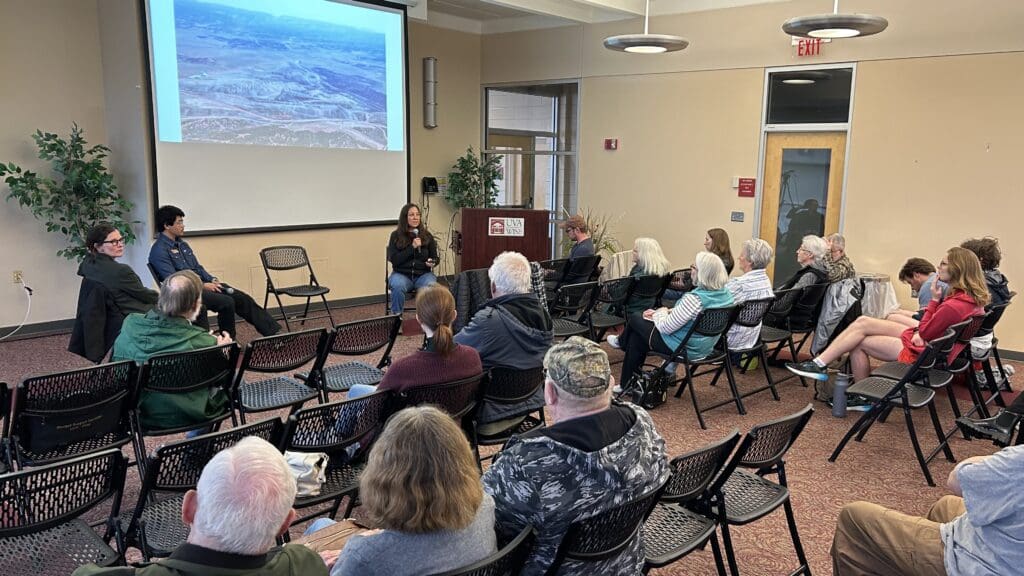
While in the area, our team met with the Southern Appalachia Mountain Stewards (SAMS) organizers for a potluck event. Founded in 2007, SAMS is a grassroots organization of concerned community members and their allies working to build environmentally and socially conscious grassroots networks amongst the coalfield counties and towns its members call home. Ahéhee’, thank you, SAMS, for having us and sharing the important work you are doing in your area of Appalachia. Learn more about how members of SAMS were able to protect Ison Rock Ridge from mountaintop removal.
“Come to find out: Black Mesa and Appalachia have many things in common despite obvious cultural differences. There is a close connection to nature and the environment among people who draw their identity from a rugged landscape. The story of coal extraction in our two regions is one and the same, just told from different perspectives. I am honored to have taken part in the trip to Appalachia; it has further deepened my connection to watershed restoration in Black Mesa on Navajo. I express my gratitude to everyone involved who welcomed us, danced with us and listened in to how our fight on Navajo leads to the further, broader fight for protecting our land and water.”
– Andrew Atencia, Community Organizer, Tó Nizhóní Ání
Before traveling to North Carolina, our team traveled to Looney Ridge Surface mine in Wise County, VA, a mountaintop removal mine owned by WV Governor Jim Justice’s family that has gone unreclaimed since 2014. Community groups have sued the Justice family’s company and won a settlement forcing them to clean up the site, and are hard at work enforcing the terms of this settlement. From Looney Ridge Mine, we traveled to the Kentucky Coal Mining Museum in Benham, KY, where we learned more about coal mining’s role in this region’s way of life.
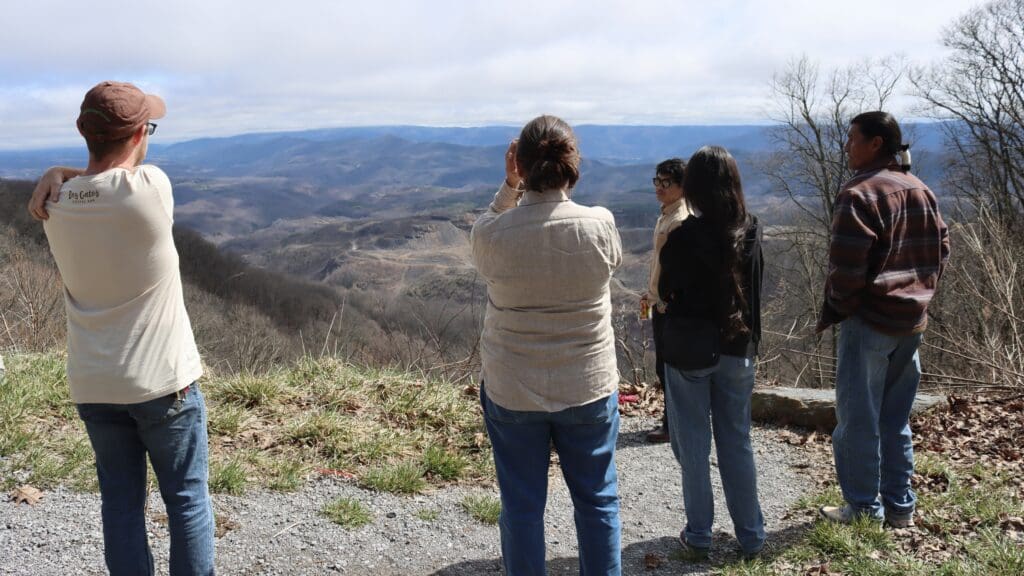
The second half of our trip was spent in North Carolina, where we attended the 47th Annual Appalachian Studies Conference hosted by Western Carolina University in Cullowhee, NC. Team members Nicole and Adrian participated in a panel discussion regarding Indigenous Leadership with Taysha DeVaughan, Comanche, of Southern Appalachian Mountain Stewards, and Crystal Cavalier-Keck, Occaneechi-Saponi, of 7 Directions of Service. Our panel discussion pertained to the vital work our organizations are involved in and the Indigenous approach and experiences of protecting the places we call home. Ahéhee’ ntsaago, thank you very much, Taysha and Crystal, for the important work you all do and the crucial Indigenous representation you bring to this work in the East.
“This trip to the Appalachian region was an eye-opener, and it brought back fond memories of my childhood when a bluegrass couple shared their music with us and talked about mountaintop removal at a ceremony on Black Mesa. I learned so much in our short time in Appalachia, especially regarding the shared experience of coal mining our mountains have endured. Shoutout to all the organizations and community groups working to protect those beautiful mountains and the Cherokee Nation for holding it down.”
-Adrian Herder, Media/Community Organizer, Tó Nizhóní Ání
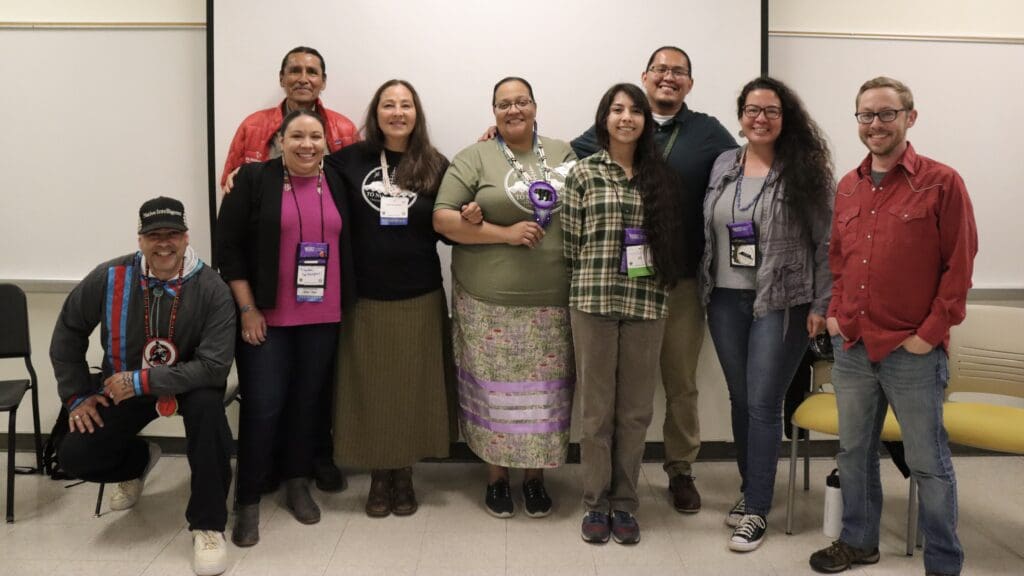
At the conclusion of the 2024 Appalachian Studies Conference, Tó Nizhóní Ání was invited to the Appalachian Community Fund + Alliance for Appalachia Reception picnic, where we heard performances by local artists Kaleb NFI, Jessica Mullins Fullen and Saro Lynch-Thomason. Check out Appalachian Community Fund to learn more about how they uplift the voices of their community, support their community’s vision for change, and advance local leadership. ACF embodies the power of collective action and bottom-up transformation.
“It was an honor and a delight to have the delegation from TNA out east. I was proud to introduce them to some of the people and places of Appalachia that I love so much, and it was a blessing for our people here to learn about the work TNA is doing on Black Mesa. I have heard nothing but gratitude and positive feedback from the folks y’all met while you were out this way. I look forward to bringing a band of justice-loving hillbillies out west to visit y’all some time!”
-Willie Dodson, Central Appalachian Field Coordinator, Appalachian Voices
Tó Nizhóní Ání would like to thank the Sierra Club and the Alliance for Appalachia for making this trip possible. We appreciate your support! We’d also like to thank our long-time partner organization, Appalachian Voices, for organizing this trip for those of us from Black Mesa. Ahéhee’, thank you, Willie, for taking the time to guide this trip and facilitating the presentations and panel discussion at UVA-Wise and the 2024 Appalachian Studies Conference.
